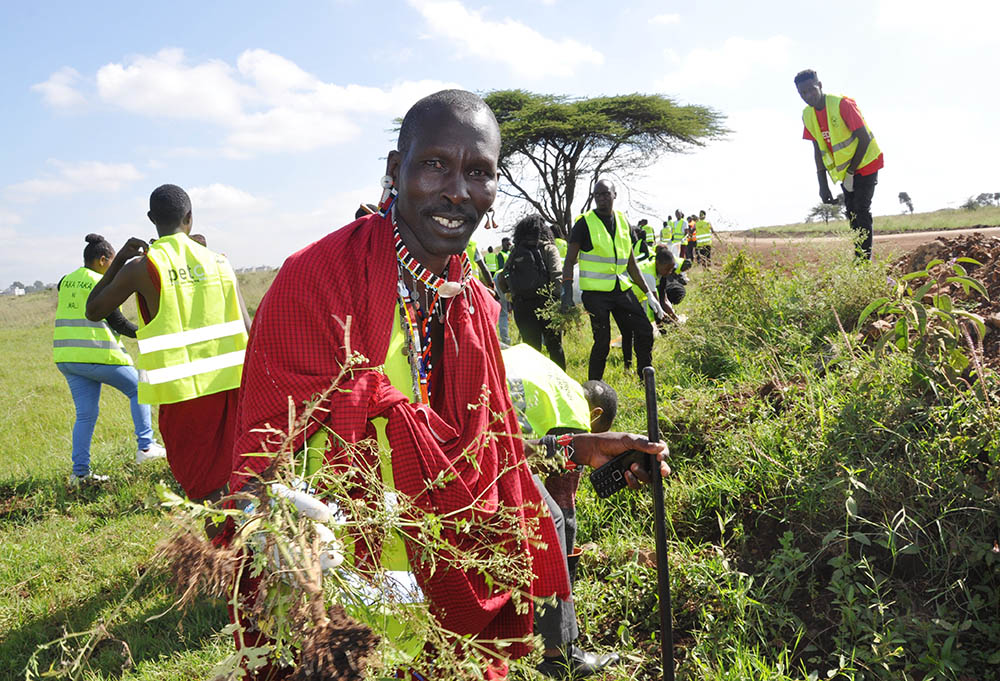
How many times have you told a family story only to have a sibling say, « I don’t remember it that way at all! » (That is actually a very nice rendition of what often happens.) Memory shapes our perspective without our willing it. If my brother used to scare me by pulling a mouse out of his pocket, I’m going to react when I see him approaching with a grin and a hand in his pocket. If he should then hand me a gift card, my future expectations might be different.
Today’s readings are all about perspective. The Gospel tells the story of two disciples whose perspective threw them into blind grief. As Jesus, the stranger, walked with them, they described him as a failed messiah — assuming that everyone assessed the situation as they did. Jesus listened to it all, allowing them to vent their desolation as they walked along.
Then, in the way only a close friend can do, he shook them out of their stupor with an all-too-familiar, loving reproach: « You dunderheads! How long did you walk with Jesus without learning anything? Have you forgotten all he said about dying and rising — that all of Scripture teaches God’s love cannot be overcome? Let’s take it once more from the top. »
Finally, sitting at table with them, he explained it all again in one gesture. He took bread and blessed and broke it, reminding them that giving oneself totally for others is God’s route to the fullness of life.
Peter taught something similar in his Pentecost reprise of the mystery of Jesus. Peter recounted the historical events as everyone knew them. He then proclaimed that all that happened to and through Jesus was part of the process of accomplishing the divine plan for the world.
Having reminded them of Jesus’ goodness, his rejection, death and resurrection, Peter summarized it all saying, « It was impossible for him to be held by death. »
Luke the evangelist gave us these two different renditions of the same story. For the early church, it was a story they heard from participants (who probably each had their own version). Ultimately, the story is that, in Christ, the Holy Spirit is filling Earth and her inhabitants. But, as we and the Emmaus travelers know only too well, it takes a long time for Jesus’ followers to understand that.
And so, for us? Because this is the weekend of Earth Day 2023, we might listen long and carefully to one particular line from the first letter of Peter. He says, « Conduct yourselves with reverence during the time of your sojourn. »
The author wrote that nearly 2,000 years ago. We hear a modern rendition of it today as Pope Francis tells us in « Laudato Si’, on Care for Our Common Home » to show reverence for every bit of creation because « it is our humble conviction that the divine and the human meet in the slightest detail in the seamless garment of God’s creation, in the last speck of dust of our planet. »
Peter told his audience that the people of his time failed to recognize that Jesus was sent by God in spite of the good he did. The travelers to Emmaus didn’t recognize the risen Christ as he walked with them until he prayed with them. Until the 19th century, most Christians accepted slavery as a natural state for some people — until they knew they had to change the laws.
When humans accept new perspectives, they must put them into action.
Today, in Laudato Si’, Francis makes an extraordinary claim as he invites us to recognize all of creation as « a magnificent book in which God speaks to us and grants us a glimpse of his infinite beauty and goodness. » He adds that, for Christians, « the destiny of all creation is bound up with the mystery of Christ. »
Just as people of Jesus’ day missed the point, many today remain unaware or insufficiently concerned about how we are shaping the future of our planet. While the crisis of Earth is but one of the ways in which God’s plan for the future is being thwarted, with the exception of nuclear warfare no other evil compares to the possibility that all life on Earth could be snuffed out as a result of human carelessness or apathy.
Jesus invited the Emmaus disciples to see through his eyes. Francis does the same in Laudato Si’ as he calls Christians to « an ‘ecological conversion,’ whereby the effects of their encounter with Jesus Christ become evident in their relationship with the world around them. »
He adds, « Living our vocation to be protectors of God’s handiwork is essential to a life of virtue; it is not … optional. »
The early Christians had to develop a new perspective. How are we called to do the same?